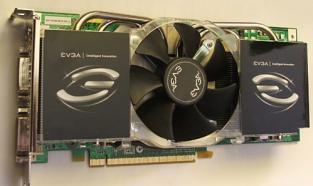OOPS! You forgot to upload swfobject.js ! You must upload this file for your form to work.
Intel does not rule out expansion of cooperation with ARM
![]()
|
xtreview is your : Video card - cpu - memory - Hard drive - power supply unit source |
|
|||
|
|
||||
 Recommended : Free unlimited image hosting with image editor
Recommended : Free unlimited image hosting with image editor
|
POSTER: computer news || INTEL DOES NOT RULE OUT EXPANSION OF COOPERATION WITH ARM |
DATE:2016-09-20 |
|
|
PCWorld Resource was able to talk with Dr. Venata Renduchintala, which in 2015 moved to the processor giant as vice president of Qualcomm's, to work in the status of the president of the group, engaged in client products, "Internet of things" and the system architecture. Such a high position allows it to influence the company's strategy, in need of reform. For example, "Dr. Murthy," as he calls the inner circle, has already managed to convince Intel to abandon the overuse of mobile processors with integrated modems. The last was sold in discrete design, and it has been proved by the presence of Intel components inside the latest Apple smartphone. Renduchintala also admitted that Intel does not exclude the possibility of expanding cooperation with ARM - at least, he personally believes that transparency in terms of use of platforms will benefit the business. If we talk about virtual reality segment, there Renduchintala considers possible creation of a specialized processor for self-sufficient helmets of virtual reality - these devices all the computational load assume, without requiring a PC. In the field of lithography technology, according to Intel representative, there is no reason for despair and talk about the "death" of Moore's Law. Light at the end of the tunnel, and the company is thinking about switching to 5-nm technology. The vehicle control systems Intel is going to participate with their specialized accelerators Xeon Phi, which will work in stationary servers, doing the processing of data collected on-board systems for further learning and improvement algorithms. Advantage over NVIDIA in this area Intel believes the presence of developments in various fields, not only in the graphics processors. | ||
|
|
||
|
xtreview is your : Video card - cpu - memory - Hard drive - power supply unit source |
|
|
|
|
||
|
Xtreview Support  N-Post:xxxx Xtreview Support        |
INTEL DOES NOT RULE OUT EXPANSION OF COOPERATION WITH ARM |
| Please Feel Free to write any Comment; Thanks  |
Unofficially about Intels plans to release 300-series chipset (2017-09-08)
The European Court sent Intel case on abuses for reconsideration (2017-09-07)
The six-core processor Intel Coffee Lake lit up at a Chinese auction (2017-09-06)
Compact systems Intel NUC based on Coffee Lake will be released in the second quarter of 2018 (2017-09-05)
Ilon Mask believes that the third world war can begin artificial intelligence (2017-09-05)
The six-core processor Intel Coffee Lake has conquered the frequency of 5.0 GHz (2017-09-05)
Morningstar experts believe that Intel has a good potential in the field of artificial intelligence (2017-09-04)
The mention of Coffee Lake on the Intel site indicates the proximity of the announcement (2017-09-03)
Intel introduced Movidius Myriad X the visual center for robots became smarter (2017-08-29)
Intel stops supplying Xeon Phi 7200 Knights Landing coprocessors (2017-08-26)
Intel Core i7-8700K seen in the companys motherboard ASRock Z370 Pro4 (2017-08-26)
Former CFO Intel is preparing to leave the company (2017-08-25)
Expansion of 10-nm Intel processors range will be on 2018 (2017-08-24)
Leaks on the performance of Intel Core i3-8350K Coffee Lake (2017-08-24)
Six-core processors Intel Coffee Lake should be released in October (2017-08-22)
Analysts believe that the new processors from Intel and AMD will revive the PC market in the second half of the year (2017-08-22)
Atom C3000 processors registered in the Intel Price List (2017-08-19)
Intel and BMW gather around themselves new partners to develop robots (2017-08-17)
Details about the budget SoC Intel Gemini Lake (2017-08-15)
Intel introduced a new form factor for SSD servers line (2017-08-10)
![]()
To figure out your best laptops .Welcome to XTreview.com. Here u can find a complete computer hardware guide and laptop rating .More than 500 reviews of modern PC to understand the basic architecture


7600gt review
7600gt is the middle card range.
We already benchmarked this video card and found that ...

 geforce 8800gtx and 8800gts
geforce 8800gtx and 8800gts  Xtreview software download Section
Xtreview software download Section  AMD TURION 64 X2 REVIEW
AMD TURION 64 X2 REVIEW  INTEL PENTIUM D 920 , INTEL PENTIUM D 930
INTEL PENTIUM D 920 , INTEL PENTIUM D 930  6800XT REVIEW
6800XT REVIEW  computer hardware REVIEW
computer hardware REVIEW  INTEL CONROE CORE DUO 2 REVIEW VS AMD AM2
INTEL CONROE CORE DUO 2 REVIEW VS AMD AM2  INTEL PENTIUM D 805 INTEL D805
INTEL PENTIUM D 805 INTEL D805  Free desktop wallpaper
Free desktop wallpaper  online fighting game
online fighting game  Xtreview price comparison center
Xtreview price comparison center Lastest 15 Reviews


Rss Feeds
Last News
- The new version of GPU-Z finally kills the belief in the miracle of Vega transformation
- The motherboard manufacturer confirms the characteristics of the processors Coffee Lake
- We are looking for copper coolers on NVIDIA Volta computing accelerators
- Unofficially about Intels plans to release 300-series chipset
- The Japanese representation of AMD offered monetary compensation to the first buyers of Ryzen Threadripper
- This year will not be released more than 45 million motherboards
- TSMC denies the presentation of charges from the antimonopoly authorities
- Radeon RX Vega 64 at frequencies 1802-1000 MHz updated the record GPUPI 1B
- AMD itself would like to believe that mobile processors Ryzen have already been released
- AMD Vega 20 will find application in accelerating computations
- Pre-orders for new iPhone start next week
- Radeon RX Vega 57, 58 and 59: the wonders of transformation
- ASML starts commercial delivery of EUV-scanners
- The older Skylake processors with a free multiplier are removed from production
- Meizu will release Android-smartphone based on Helio P40
- AMD Bristol Ridge processors are also available in American retail
- The fate of Toshiba Memory can be solved to the next environment
- duo GeForce GTX 1080 Ti in GPUPI 1B at frequencies of 2480-10320 MHz
- New Kentsfield overclocking record up to 5204 MHz
- Lenovo released Android-smartphone K8

HALO 3 HALO 3 - Final Fight!

PREY Prey is something you don t often see anymore: a totally unigue shooter experience.

computer news computer parts review Old Forum Downloads New Forum Login Join Articles terms Hardware blog Sitemap Get Freebies


